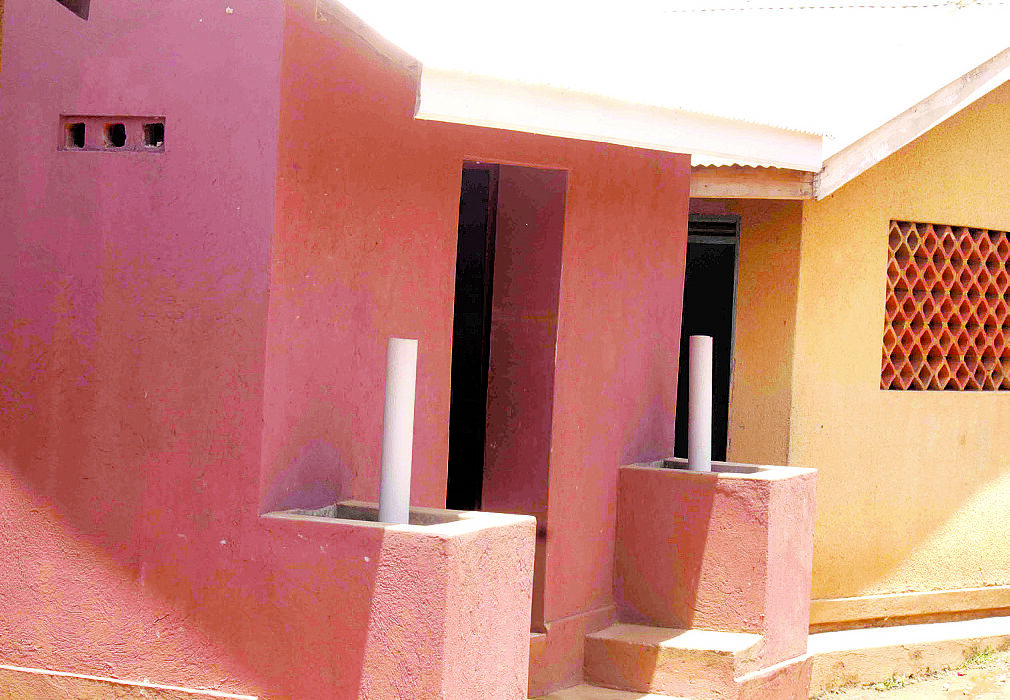By Henry Nsubuga
Students in schools implementing the green schools project have continued to demonstrate innovations in tree planting and waste management. This week, Mukono Boarding Primary School showcases how it uses biomass to cook in order to save the environment.
Children’s feeding is one of the things each education institution gives priority. It does not matter whether day or boarding, cooking is a daily routine for educational institutions.
Because most of the kitchens depend on biomass (firewood), the cost is not only huge financially, but also on the environment.
Against that background, Mukono Boarding Primary School, a 1,200-pupil-strong universal primary education institution, decided to switch to alternative sources of energy as a cost-saving measure and to mitigate the effects of climate change.
The headteacher, Susan Wamala, says in 2016, when they operated a biomass-fuelled kitchen, they consumed, on average, seven truckloads of firewood per term.

“A truckload of firewood costs over sh1m. That meant we spent sh7m per term on firewood alone,” she observes. So, in 2017, Wamala says a Danish charity, Gorm and Karin of the Global Youth, supported the school with the construction of energy-saving stoves and bio-latrine to produce biogas.
“The donors facilitated the building of energy-saving stoves, which led to a reduction in the number of trucks of firewood needed per term from seven to five. By then, a truck cost sh700,000. I, therefore, saved sh1.4m per term and sh4.2m for the whole year.”
“By doing that, we responded to the Sustainable Development Goal (SDG) 7, which is about ensuring access to clean and affordable energy, which is key to the development of agriculture, business, communications, education, healthcare and transportation,” she says.
George Masengere, the Mukono Municipality principal environment officer, says reports from the National Forestry Authority indicate that Uganda’s forest cover has reduced from 24% in 1990 to 12% in 2021.
“Although using firewood is expensive, with a lot of challenges, including effects on the lives of the people who work in the school kitchen, the environment, among others, most school proprietors think it is the only available and affordable source of energy,” Masengere says.
The Rev. Joyce Kyambadde, the school chaplain, who heads the biogas project, says unlike the common biogas projects, which depend on animal waste, the school uses human excreta.
Kamyabadde, who introduced herself as an advocate of environment conservation, says they had never dreamt of using children’s waste to produce cooking energy.
She says the technological bio-latrine was built by engineers from the Joint Energy and Environment Projects (JEEP).
Ruth Nambogga, the JEEP chief executive officer, says although biomass accounts for 93% of domestic energy used in Uganda, destruction of forests could be greatly reduced through the use of smart cooking stoves and bio-latrines.
The technology, Nambogga says, costs between sh11m and sh30m, depending on the size and number of latrine stances.
The Mukono Municipality principal education officer, Faridah Nassolo, says such innovations will help save forests and the environment as schools, instead of looking for forests to cut for firewood, would instead invest in the construction of bio-latrines.
Nassolo says although she would want the technology to be rolled out to all the 32 government-aided schools in Mukono Municipality, they are financially constrained.
Fransisca Nagginda, a Primary Six pupil, says they not only get biogas from the technology, but also manure to fertilise their garden.
Praise Nassanga, also a Primary Six pupil, says unlike individual homes which may not have the money to construct such expensive technologies, schools, which use a lot of firewood, can take the lead.
What others say
The Rev. Joyce Kyambadde, school chaplain
With the smart cooking stoves and the biogas, cooks find it so easy because the kitchen is no longer filled with too much smoke. Food is also served on time, unlike in the past, when we were fully dependent on firewood.
Fransisca Nagginda, Primary Six pupil
The process of making our biogas is somehow funny, though serious and useful. Imagine pupils acting as producers of the raw material, which is free, as we go to the toilet to ease ourselves.
Elvis Lubega, pupil
We protect the trees which were already planted and also plant new ones. We decided to put emphasis on fruit shade trees and the project is going well.

